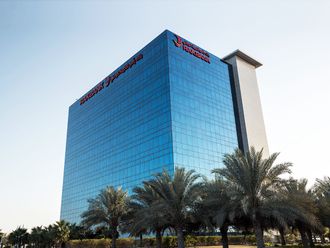Dubai: Saudi Arabia has authorised foreign share ownership on its stock market, a long-awaited opening up in the Arab world’s biggest bourse.
Although no timetable was given for implementation of the opening up, the reform initiative has been widely welcomed by global and regional asset managers, banks brokers and various financial market intermediaries.
The announcement has created huge global investor interest with global index provider MSCI mulling to add Saudi Arabia to it broader indices, although it would wait to see the course of market reforms.
“Currently, Saudi Arabia is covered by MSCI but does not belong to a specific category. This means that, if Saudi Arabia was to join the MSCI Frontier Markets, it would become its first component with a weighting above 60 per cent. If Saudi Arabia was to join the MSCI Emerging Markets, it would get a weighting of between 4 and 5 per cent, similar to that of Russia,” said Matthieu Belondrade, head of Global Emerging Markets Equities at Natixis Asset Management:
The development is seen as good for both the local market and the wider Middle East region, as wider international investment can be channelled through Saudi, giving some of the large cap Saudi businesses wider exposure to international investors.
“We have seen various reform initiatives in Saudi Arabia and we believe the opening of the stock market will further support the strong regulatory environment being developed and championed by the CMA,” said Steve Drake, head of Capital Markets at PwC.
Analysts said Saudi government’s decision to authorise the CMA to allow foreigners to buy and sell on Tadawul represents a major step forward for the Saudi economy.
The opening of the stock market could help strengthen and deepen the liquidity of the exchange and should act as a catalyst to attract international issuer appetite which I would see as a sensible next step.
“Saudi Arabia stock exchange is clearly the largest by market capitalisation and number of securities, so [this represents] a very positive step for the GCC financial markets. Saudi Arabia started the process of “opening up” about four years ago when it introduced the equity swaps as a mechanism for foreign investors. On many fronts Saudi reform has been evolutionary rather than big bang and this is consistent with progressive reform. The long term goal remains to open up Saudi Arabia for foreign investment both through private and public markets,” said Jahangir Aka, managing director of SEI Investments.
The short term impact of this announcement could result in a rally on Saudi market, according to Fahd Iqbal, Head of Middle East Research Credit Suisse, but he expects the fundamental impact will take longer to play out and will have a much more lasting impact on the market and the economy.
According to publicly availably draft documentation, Qualified Foreign Institutional Investors (QFIIs) would need minimum assets under management (AUM) of $5 billion (Dh18.36 billion) and to have been engaged in securities activities for over five years.
“This is in line with the regulatory authority’s preference for long-term investors over short-term speculators. Such investors are unlikely to rush into a market where they have had little direct experience before. Moreover, given Saudi Arabia’s track record for bureaucracy and red-tape, the process of account opening and access could also be time consuming,” said Iqbal.
So far the foreign investors were entering the Saudi market through mutual funds, corporate portfolios and Swap arrangements. Swap arrangements, which were allowed in 2008, allowed an authorised local firm to trade on the Tadawul on behalf of a foreign client, allowing the foreign client to stock pick.
On the other hand, the swap agreements gave the CMA the ability to oversee foreign transactions, monitoring the funds as the Authorised Entities were required to report swap transactions to the CMA on a daily basis.
“The decision to allow investors to own the shares directly and exercise voting rights will spur the concept of activist shareholders in the kingdom, as opposed to a purely monetary participation in the listed companies before. Companies will benefit by receiving management, accounting or legal guidance in keeping with the best practices practised by their foreign shareholders. The companies can also take advantage of the latest technology, innovations in operational practices, and new financing tools that they might not otherwise be aware of,” said Muhammad Anum Saleem, senior associate, D&P Dhabaan and Partners.












